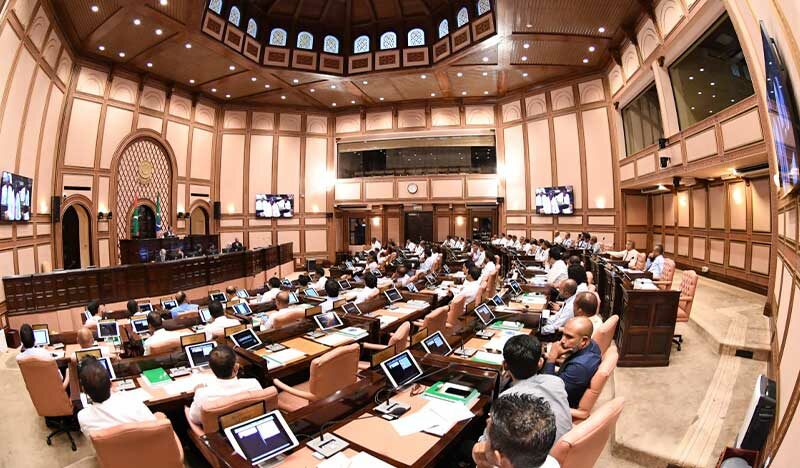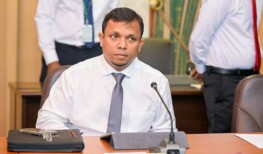TM Urges Parliament to Reject Proposed Constitutional Amendment

Photo: People’s Majlis
Transparency Maldives (TM) has called upon Members of Parliament to reject a proposed constitutional amendment to Article 262.
The organisation contends that the amendment if passed, would pose constitutional challenges and diminish the role of public referendums in the legislative process.
PRESS STATEMENT: Transparency Maldives calls on Members of Parliament to reject the proposed unconstitutional amendment to Article 262 of the Constitution.
Read the full statement here: https://t.co/kkzB687hO3 pic.twitter.com/t1M9x3xJMx— Transparency MV (@TransparencyMV) October 2, 2023
Article 4 of the Constitution of the Republic of Maldives underscores that the power of the state derives from and belongs to the people. Article 262(b) of the Constitution specifically mandates that any amendments proposed to Chapter II of the Constitution, which includes critical aspects such as the Maldivian Charter of Rights and Freedoms, Article 79(a) (Term of Majlis), Article 107 (Term of Office), and Article 108 (Presidential Election), must only be granted assent by the President following approval in a public referendum.
On 2 October 2023, Imthiyaz Fahmy, the Member of Parliament for North Maafahnu, introduced a bill seeking to amend Article 262 of the Constitution. This bill proposes that if a public referendum has already been conducted on a particular matter, subsequent amendments to the constitution pertaining to that matter, even if falling under Article 262(b), would no longer necessitate public consent through another referendum.
TM has raised concerns about the implications of this proposed bill, asserting that it would effectively strip the public of their veto power over certain constitutional changes before they receive presidential assent.
The constitutional provision granting this veto power aims to prevent elected representatives from making arbitrary decisions when altering crucial chapters and articles of the Constitution. Any modification of Article 262 that curtails the people’s authority, as proposed by the People’s Majlis, is deemed unconstitutional by Transparency Maldives.
The organization has called on members of Parliament to reject the proposed amendment, contending that it would enable elected representatives to employ referendums as a means to limit public consultation on important areas protected under Article 262, including the Maldivian Charter of Rights and Freedoms.







